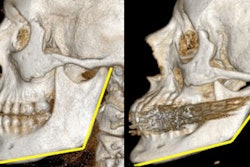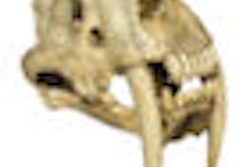Many of the common orthodontic problems experienced by people in industrialized nations are due to their soft modern diet causing the mandible to grow too short and small relative to the size of their teeth, according to new research from the University of Kent (Proceedings of the National Academy of Sciences, November 21, 2011).
The research, which was conducted by Noreen von Cramon-Taubadel, PhD, from the university's School of Anthropology and Conservation, tested the long-debated theory that the transition from a largely hunter-gatherer to an agricultural subsistence strategy across many parts of the world has had a knock-on effect on the growth and development of the human skull and mandible.
von Cramon-Taubadel and colleagues compared the shape of the cranium and mandible of 11 globally distributed populations against models of genetic, geographic, climatic, and dietary differences. They found that mandible shape, and to some extent the shape of the upper palate, was related to the dietary behavior of populations, while the cranium was strongly related to the genetic relationships of the populations.
In particular, the mandible reflects whether populations are primarily hunter-gatherer or agriculturalist in nature, irrespective of what part of the world they come from. This therefore suggests that chewing behavior causes the mandible to grow and develop differently in different subsistence groups, while the skull is not affected in the same way.
Overall, the hunter-gather groups had longer and narrower mandible, indicating more room for the teeth to erupt correctly, while the agriculturalists had generally shorter and broader mandibles, increasing the likelihood of dental crowding.



















